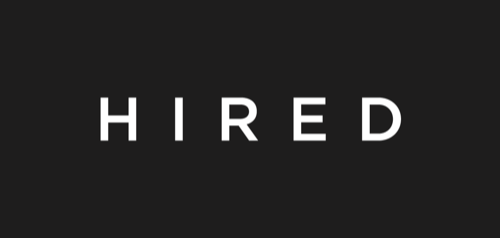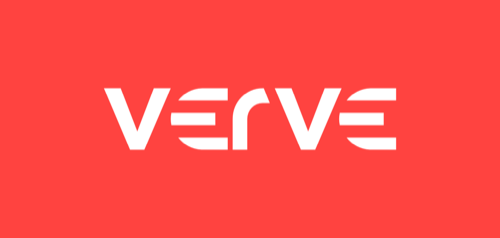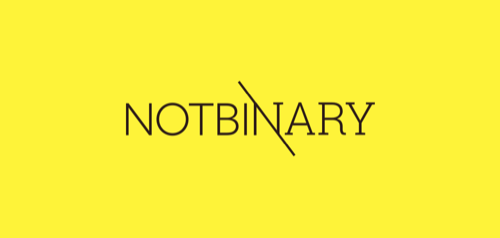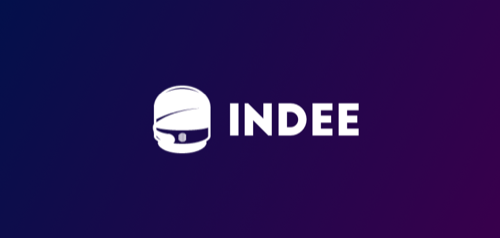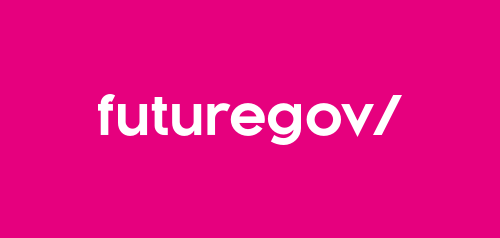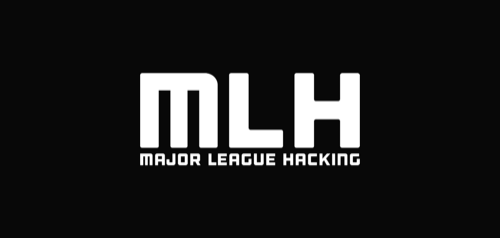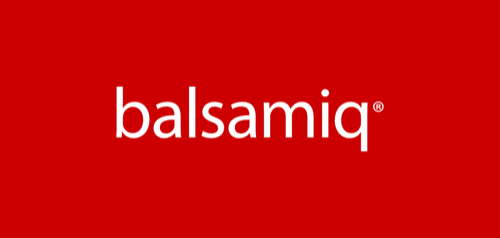Transcript
Well, hello, everyone. My name is Taylor Elyse Morrison, and I do a lot of different things.
It's hard for me to come up with a bio. I generally talk and speak, and write and educate around topics like branding, like operations, and self-care, and, when I try and put it done with - I guess encapsulate it, it comes up with "ritual builder". I like helping people build rituals, and I like to help organisations build meaningful rituals for work and life.
Today, I'm going to talk to you about self-care and going beyond the hashtags. So, I don't know how many of you are familiar with #selfcare. I will take you on a walk what you might see on that hashtag. It's not playing a video. I can tell you some of the things. There are power puff girls there, Toy Story, things about what are the best emoji combinations for you to use? Facials, different ways for you to paint your nails. A ton of things under #selfcare, and, if you used that to come up with a definition of self-care, you would ask the question, "What is self care?" If I do my job by the end of this, you should be able to answer that question.
Since we're already in Instagram World, I will do an introduction to myself looking at some of my old Instagram posts. So, we're going to do a throwback, TVS. This is me when I graduated college, as you can probably tell, from my accent, I'm from America. I went to Vander bit. Lt and studied human and organisation - I double majored, but that's too much to say both of my majors. I always have not really liked school that much. I like learning. I did decently at it, but I was craving the part where I could apply what I learned. As soon as I graduated, I was bye, time to go to the real world. When I went to the real world, and I came much like this. This is a Metro train. It is a commuter train that takes you out to the suburbs.
I was commuting anywhere from two to two and a half hours every day. It was a lot. I was in a leadership development programme, and, in some ways, it was really great, I was being poured into and being taught a lot of valuable information. As I was looking at the people who were directors and VPs, and even senior VPs at the organisation I was working at, I realised I did not want to be them. They were working over holidays, they were working on nights and weekends, and not like on fun exciting projects, it was because there is always a looming deadline they were trying to chase after.
Honestly, a arbitrary deadline saying by June 15th, and everyone's killing themselves to get something done by June 15th. Not a lot of self-care. Not a lot of work-life balance, at least in those higher levels, so I was kind of like, I don't think that's where I want to go. So I left that company, and I actually went to become the first full-time employee at a health and wellness start up. I was the VP of operations. It was so much fun. I was building things from the ground up every day. I was getting to, like, think of an idea in the morning and execute it sometimes that day. A lot of flying by the by the seat of our pants. It was a lot of fun. I was also getting married that year. I also had a business I was running on the side, and I was definitely feeling bold. I was okay, I can do a lot of stuff, but I was also very, very quickly burning out. I wasn't good at practising self-care. If you can relate to any of this, with , if you can see the seniors in your company and say, "I don't want the same type of lifestyle they have, I want their salary and title but I don't want to have to move up the ranks and lose my social life or any sense of taking care of myself." Or you can relate to me and trying to do all the things and not knowing how to take care of yourself in the midst of it, I want you to know you're not alone. This whole phenomenon is bigger than me and the audience. It's bigger than all of us, actually.
I pulled some statistics, and, to start, 72 per cent of millennials were like, yeah, health care, something - self-care I need to get better at this year. They put it on their list of resolutions. 74 per cent of adults here in the UK said they felt so stressed at some point in the last year that they just honestly did not know how to cope with it. 57 per cent of the working days that are lost again here in the United Kingdom are because of stress and anxiety, and I believe this is from 2018. I guess it has to be 2017 or 2018. It's too early to know how stressed in the last two weeks! Finally, 64 per cent of millennials say they feel overwhelmed at work on a daily basis. That's a lot of stress and anxiety, and a lot of people not really knowing how to practise self-care and not knowing how to take care of themselves. So, for me, what changed my journey, what helped me be able to fight turn-out was actually taking a bath, as silly as it sounds.
It was a Sunday night, I was doing work for my side business at the time, and I was doing client work, and then I was looking ahead at what I needed to do in my day job in the coming week, and I was just, you know when you sit at your computer, and you're kind of doing stuff but you're not really doing anything, you're wasting your time. It was one of those things, I was passing cues, feeling stressed and more stressed. I shut the laptop and said, "I'm going to take a bath." I close the laptop, take Epsom salts, take a bath. I made an Instagram story. It felt important and, "I'm going to mark I'm taking the bath." I didn't look at my laptop or phone until Monday morning. It felt amazing. It was like finally this peaceful transition from the week that was into the week that was coming, and I kept doing it. This is my first self-care ritual.
Now, almost every Sunday, I take this bath. I close my laptop, I close my phone, take the Instagram story, because it's tradition now, but that was my first entree into self-care, and then it became something I wanted to talk to other people about, and help other people develop and cultivate. That's how I ended up here today. For me, the bath is what changed everything. And, as I was doing this doing journey of self-care work, I kind of had to come up with my own definition - there are more technical or medical definitions - but looking at #selfcare needed something more workable. What I came up is that self-care is listening to your body and it's responding in the most loving way possible. And, it seems really simple, but, as most of you can probably attest to, it's also really, really difficult. Let's just start with the listening piece, because I can almost hear a lot of you asking me mentally, I can see the wheels turning. So how do I actually listen to my body? We're going to try something, and I'm going to tell you a couple of tools that you can use to start listening to your body. And, it can look like different things. The first thing we're going to try is stillness.
So, I would love to have my brain constantly consuming something. I would be listening to a podcast episode, or have Netflix on in the background, or music. I like something always there honestly to drown out my thoughts, which is not a healthy practice, so one of the first steps I take when trying to listen to my body is to meditate or simply to do some deep breathing. If you're comfortable, I would love you to take three deep breaths with me. You want to roll your shoulders back and get comfortable, feet flat on the floor. We will breathe in through our nose, out through our mouth at your own pace. I'm going to close my eyes and I'm standing up here because it will be weird to see you all! In through your nose, out through your mouth. Ready? And, when you're ready, you can bring open your eyes if you have them closed. Sometimes, when I am doing that deep breathing, I will find that there's now a space for an emotion that I didn't realise was there, or something that I didn't realise was bothering me, and, just because I pressed pause on everything else in the external world, I could actually start to process what was going on. Sometimes, nothing comes up, and that's fine too. Deep breathing in itself is good to flesh out the cortisol in the system which is the stress hormone.
In one scenario, you might realise something that comes up and you can start to care for yourself. In another scenario, you've just cared for yourself just by the act of deep breathing. That's one way that you can start listening to your body.
The second way is through observation. So, actually starting to see the patterns that happen in your life. Is there something that happens to you every time you have a one-on-one with a manager and you notice that you have a certain emotion, or feeling, or response, or even a type of food that you eat? How does that produce a response in your body? For me, it was migraine. I used to get - and I still get them - but I get these really bad migraines where my head is pounding to the point that sometimes I will throw up, which is gross, but that's the reality of what happens. It's not a fun situation. When these started when I was younger, my mum would encourage me, you had a migraine, so I want you to document everything that you can remember eating the day before, a couple of days before, what you were doing, what was the environment like before? And I realised that I was getting these migraines when it was unusually hot weather, when I had not upped my water intake to meet that hotter weather, and also the cherry on top was when I hadn't slept enough the night before. If it is just hot, or if I don't drink enough water, it's fine.
It's like that combination of the three things that makes a really bad migraine. I figured that out through observation. And then the last piece is reflection, so an intentional looking-back. The way I like to reflect is first to start with picking an interval of time. So, it could be for the day, the month, the year, whatever you want it to be, but it just helps to get specific so that you know the point of time that you are evaluating, and then from, there, you're going to ask yourself two questions: the first is when did I experience tension in whatever interval of time? When did I experience tension yesterday or last month? And then the second question that you are going to ask is when did I feel most supported? When did I feel most cared for? Those two questions really can help lay the foundation of moving into the response.
So, those are the three ways that you can use to start listening to your body: stillness, meditation, just breathing, observation - looking for those patterns - and then reflection, asking yourself these questions. If you remember, my definition of self-care, so, listening to your body and responding in the most loving way possible, you want and you want to get to the responding part now. There are two different ways that you can respond. Before I do that, I just want to pause and say that I'm so passionate about self-care, because I'm not great at it, so I'm constantly having to develop it. When I teach workshops, when I get, so to speak, about it, I love learning from everyone else about what their practices are so I can use them or experiment them in my own life and see if they feel good for me. The reason I chose this of a woman watering her plants, last week, I was teaching a workshop about self-care, going around sharing our different rituals. One woman shared that for her. She's made this self-care ritual of watering her plants. It's this time when it is meditative. She's chosen on another living entity to focus on her home.
That's her self-care ritual. There are so many other things that can be rituals that maybe you don't even think of at rituals, like watering your plants, and, for me, a ritual just needs to have two components. The first is a clear intention, and then the second is actually the component, what makes up the ritual. So, to give you a couple of examples, you can go back to my bath. So, for the bath, my intention is to move between - sorry, I feel like I'm spinning on the microphone, or something! My intention - sorry the person after me, you can clean it up! For the bath, my intention is to move gracefully between one week into the next week, and in general the components are I have to actually take a bath. I do take the Instagram story beforehand, because if I don't, people are like, "Did you take a bath this week?" Then I do that. Then I don't have to look at my phone or laptop until the next week.
Those are the three components. There's a lot of flexibility within that. One week, I might journal in the bathtub. Another week, I might be reading, sometimes, I will sit there for ten minutes, sometimes, I will soak for an hour. All of that is flexible. But I'm completing my ritual. I feel I'm caring for myself when those components are there. If we look at morning rituals, which probably a lot of us have heard about morning rituals, I'm not going to be prescriptive about whether or not you should have one, but we can use that as an example.
If you were to create a morning ritual, you might say that your intention is to start your day with joy. You might say, I'm going to do that by having some time where I'm writing, moving my body, and having some time when I'm reading. And maybe on your best day, you are reading, I don't know, reading for, like, 20 minutes. You're going on a 45-minute run, and then maybe doing yoga afterwards, and then you're writing morning pages, and you're doing three pages of morning pages. That could, like, your ideal scenario. Judging by faces here, people are saying that's not their ideal scenario! [Laughter]. That's okay too. That can be dream morning. I can often do that. Really remember your components, the things that you said you wanted to do were just to read, to write, and to move your body.
If you wake up super late, that doesn't mean you have to throw out your morning ritual, that means you can adjust. Maybe for reading, you read a poem that inspires you, or movement, you do two sun salutations, and, then for writing, you write five things you're grateful for. You've got that done within ten minutes, maybe even less. The point of the ritual is not to say I failed at the ritual which is actually the opposite of self-care, it's not to say I failed because I didn't do this elaborate thing, it's to have flexibility, to know the things that actually make you feel good, and, if you're wondering about that, you can go back to your answer to the question for when you felt most supported, and to start implementing those intentionally into your day.
Really, when you look at rituals, they're proactive, so that's you looking at the things either the places where you know that you're experiencing tension, and starting to add some positives, some supportive practices there, or looking at places where you say I feel supported when I do x, y, z thing, and plugging them into your day. When you look at rituals, those are your proactive forms of self-care. Now we are going to move into what you do when you're having a 911, like, when you call the police. Whatever you call for an emergency situation. You've got your self-care tool kit. That's what you use in emergencies. These are different practices that you're just having a really bad day, maybe you got some feedback that you didn't feel great about, or you've just been feeling really emotional about something, or you could just be tired, whatever the situation is, but you need something right now, and it can't wait until your next planned self-care ritual. And I'm just going to share some of the things that might show up in your tool kit. These are different for everyone, but, like I said, I love to share from other people, because there are practices that you might not even think to include in your self-care tool kit.
One thing that I like for everyone to include is breathing. We have to do it to stay alive anyway. But it's so good for you. It's really good for you. Take that time to breathe, even as little as a minute can have such a positive impact on the stress hormones in year body. The next one is calling a loved one. I love doing this one. I'm 26. I still talk to my parents almost every day. Sometimes, it's for self-care reasons, sometimes it's just to talk to them about the weather, but, for me personally, that's a big part of my self-care tool kit. Another one is having a dance party, and this is what I do when I need to feel confident. I had a dance party in the bathroom before I came up here. I was listening to Missy Elliot. That's something I will do before I have to press send on a scary email, or do something where I need confidence.
For me, personally, someone who grew up dancing, dance parties work really well for me. I will say that I work from home, so you might need to adjust this if you work in an office setting. Another one is creating. So, whether whatever art form it is, and you don't have to feel like an artist, but you draw on something, writing poetry, doing something creative instead of being in that consumption mode, can be a really helpful form of self-care. Next is walking in nature. I live in Chicago. There's not a ton of nature nearby, but
I like to go for walks not too far from the lake, and just seeing some trees and some grass feels really good. There are also science that it is good for you, so it's not just a feeling - it's true. Then, writing. Taking time to journal. I personally will sometimes just give myself five minutes to write things out. It doesn't necessarily have to be writing your feelings, but just processing. It can be lists if that is calming to you. Whatever form of writing. It feels like self-care to you. Another great one is gratitude. So, writing what you're thankful for, especially when you're in a situation when you feel everything is going to crap, taking two minutes saying, okay, what are the things I'm grateful for? You will feel so good at the end of it. You will want to keep going. It won't mean your world will be perfect, but it's a great mood-booster, and a great form of self-care. Then finally if you have a furry friend, if you have a pet, or even go to a pet store, just petting another creature that is so excited that you exist is great for them, but it's also really, really great for you. So, that's something that I like to do when I need a little bit of self-care. It's cuddle with my dog. This is not actually my dog. My dog's cuter! [Laughter].
So hopefully by now, you can answer the question of what self-care is. This is my definition. Feel free to take it and make it your own. My definition is listening to your body and responding in the most loving way possible, and just to recap, some ways for listening are stillness, observation, and reflection. Reflection is with those two questions, picking that interval of time, thinking about where you experience tension, and then also where you felt supported or cared for, and then you actually start to respond through rituals, so those proactive forms of self-care, and then through your tool kit. Those in-the-moment things that you can use when you're in a self-care emergency situation.
So I would be remiss if I didn't mention this last part, which is that our self-care needs change, so, when I talked about the morning ritual before, I used to have like a pretty extensive self-care ritual in the morning, and I would get up at five, and I'm actually a morning person, so it wasn't that awful, I would get up at five and do all these things, and that's when I was in my full-time job, so it made sense to get up earlier. It really served me in that time. Now that I don't have my full-time job, I have no reason to get up at five in the morning, and I don't really want to.
The thing that is most of service to me is to not set an alarm in the morning, and to let my body wake up gnarly, and then I will do a - wake up naturally. It might be taking a walk with my dog, writing or adjourning. I'm not doing any better or worse at self-care because my ritual changed. I'm just continuing to to listen, and continuing to respond in the most loving way possible. That's what I want for all of you too. So, thank you for having me, and letting me talk about self-care.
Here, if you go up to this link on the slide, I've got an overview of a what I've talked about, and a 31-day checklist of different practices to try. It's fun if you don't know which self-care practices to do. Some might surprise you. If you have any questions, you can DM me on Twitter, or Instagram, or pull me aside here. I would love to talk to you about self-care and maybe steal some of your self-care practices!
Thank you. [Applause].


